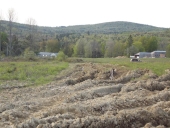posted 4 years ago
If at all possible (if purpose for the engine allows it), switch to propane ... these engines are much more forgiving in terms of maintenance; no carb issues to fiddle with. I believe my Stihl chainsaw is the only gas engine device in use out on our homestead, and only because I can drop it off at the ACE hardware shop in winter ... auth dealer ... and get it tuned up for the next summer). Everything else is propane (and propane is our fuel of choice for the homestead ... clean, easy to store, etc.)
All maintenance starts with getting hold of the "manual" for the engine, which is sometimes an art form in itself. Once you have a pdf of it (user guide, exploded diagram of parts/names, maintenance activities), then maintenance tasks are much easier to tackle. Look for forums for further self-help, based on engine type (no manuals, no forums, and so on prompt me to stay away from that engine).
For example, on my propane generators, my only maintenance on them, aside from adding oil or making sure the starting battery is in good shape, is to do a "scheduled" (varies with manufacturer) oil change, spark plug and/or filter swap, and possibly a valve adjustment at longer intervals. Rarely do they fail to start, and if they do, it is usually the battery.
If the application calls for a gas engine, then the above is still applicable, but along with the battery you have to worry about fuel (use clean fuel with stabil or some such in it). Best advice I ever saw was to install fuel shutoffs between carb and tank, and when done, shut off valve to run the engine dry (saves carb from gunking up).
When choosing your application, I'd pick either a high-quality engine brand, or an easily replaceable brand (predator), and try to look at after-purchase maintenance and service tasks long before you pick based upon price (or, if price, just swap the engine with a new one every so often). Low-cost, no-name means swap engine out. High-cost, brand-names mean it is probably repairable.
You must have good tools & supplies, a good (open-air) shop & bench, and so on to really tackle this stuff, so build it into your homestead. Depending on the device, spare parts for it, up to and including a spare engine for it, might be called for. It is so much easier to troubleshoot tough problems on the bench, than bent over the device, out in the elements. Keeping the secondary spare in good shape means you'll know what you are doing on the primary.
Don't know what it is like in your area, but "fixit-folks" have dried up; I'm also rural, so it's that much harder to get something into repair shops ... if you could find one, the wait list is long, and the cost of the item usually precludes getting it fixed, unless you can diy. So, diy with the "right stuff"!
What are others finding, wrt to engine proliferation on the homestead, maintenance, and such?










